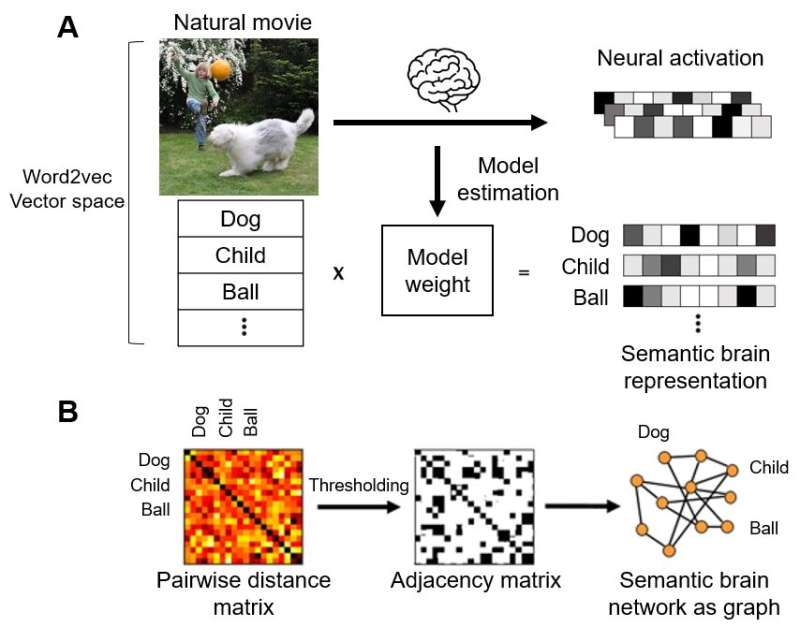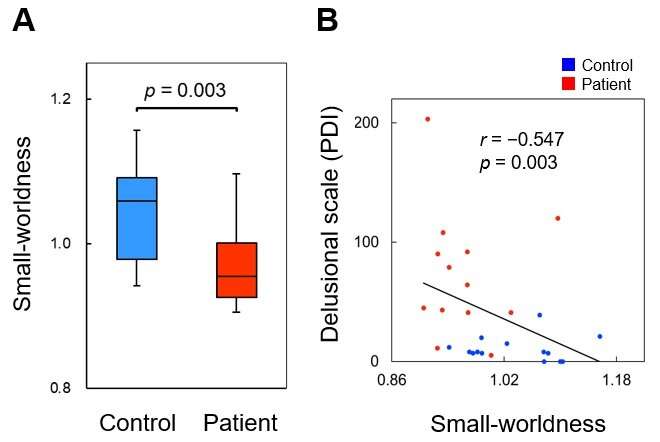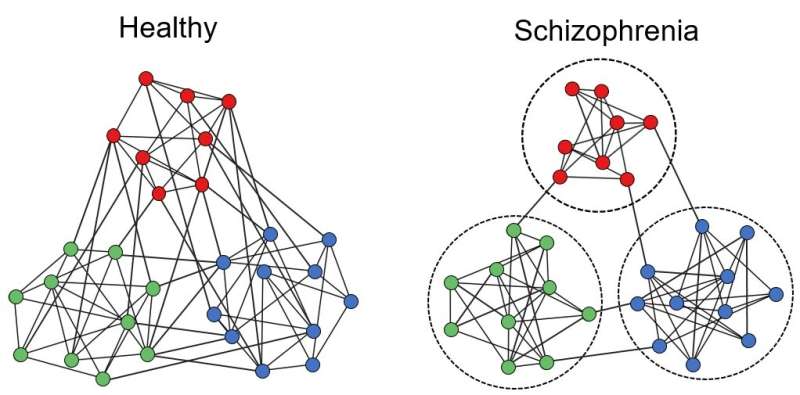This article has been reviewed according to Science X's editorial process and policies. Editors have highlighted the following attributes while ensuring the content's credibility:
fact-checked
proofread
Evidence showing the 'loosening of associations' found in schizophrenia

In a study published last month in Schizophrenia Bulletin, researchers from Tokyo Medical and Dental University (TMDU) revealed that the semantic networks in the brains of schizophrenia patients are very different from those in healthy humans.
Schizophrenia is a mental illness that usually presents with delusions, hallucinations, and incoherent speech and behavior. The fundamental feature of the disease is "loosening of associations" between ideas, which disrupts patients' thought processes. Now, researchers from Japan have tried to study the structural characteristics of the semantic networks in the brain that reflect thought disorder in schizophrenia.

Semantic processing seems to be impaired in patients with schizophrenia because of the functional disconnection between neurons. To characterize this pathology, researchers from TMDU investigated the brain activity of 14 patients with schizophrenia and 17 healthy individuals. All of the participants underwent functional magnetic resonance imaging (fMRI) while watching soundless color movies.
"It is now possible to quantitatively evaluate the semantic representations of individual words in the brain, thanks to fMRI showing brain activity and language processing techniques," says Hidehiko Takahashi, senior author. To understand the difference in brain characteristics, the team analyzed a large-scale connectivity structure of neuronal representations, or a "semantic brain network," using network analysis or graph theory, which deals with the mathematical characteristics of such graphs.

The team found that the semantic networks in the brains of healthy individuals have small-world properties similar to natural languages, meaning that concepts are organized into specific semantic domains and are globally connected, enabling coherent thought and speech. In contrast, the semantic networks of schizophrenia patients were highly modular with distinct categories, and the structure within each category was disorganized and randomized. These impairments in semantics and associations contribute to thought disorder, including delusion.
This study provided evidence for the "loosening of associations" observed in patients with schizophrenia. This new approach can help us understand how the brains of patients with schizophrenia or any other thought disorder perceive the world. It can even help to inform the development of new treatments for psychiatric diseases.
More information: Yukiko Matsumoto et al, Disorganization of Semantic Brain Networks in Schizophrenia Revealed by fMRI, Schizophrenia Bulletin (2022). DOI: 10.1093/schbul/sbac157





















